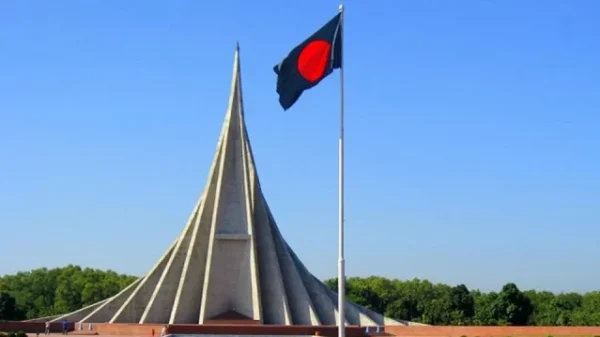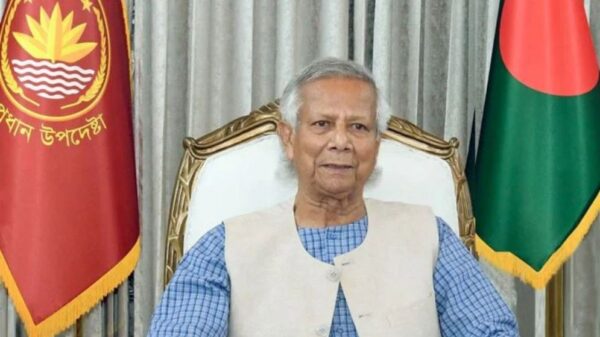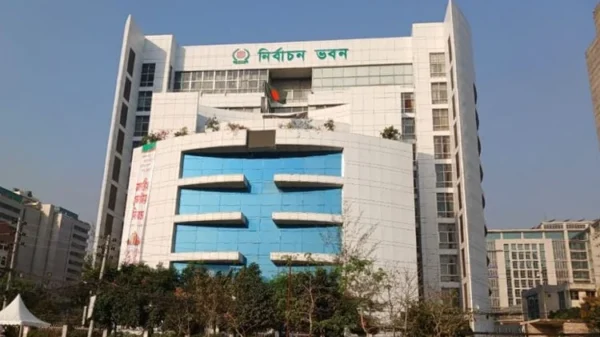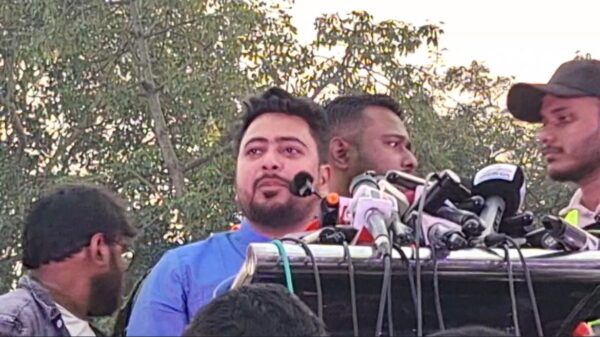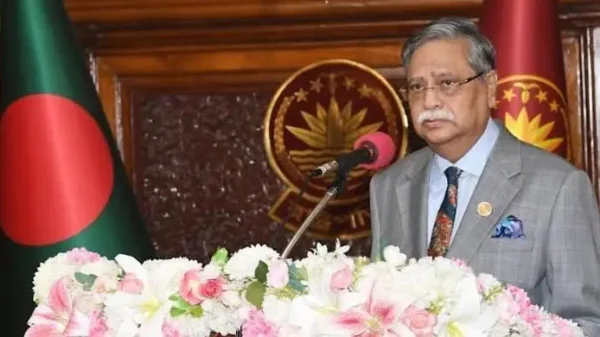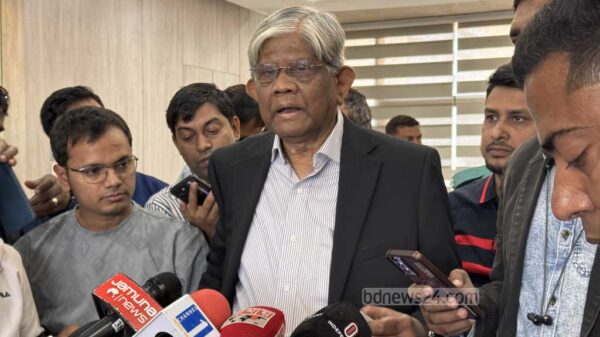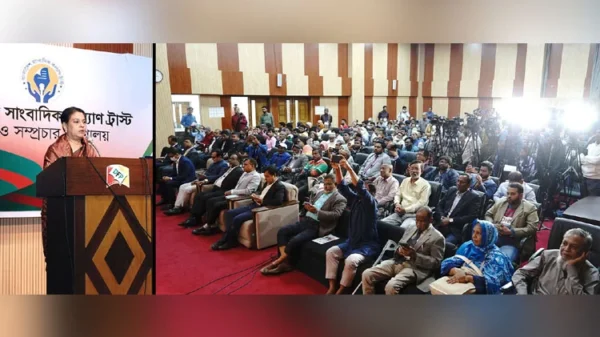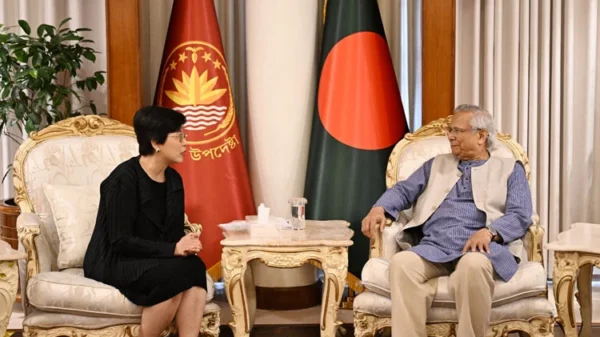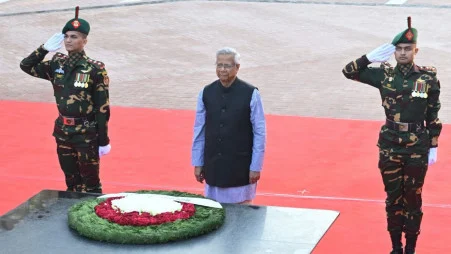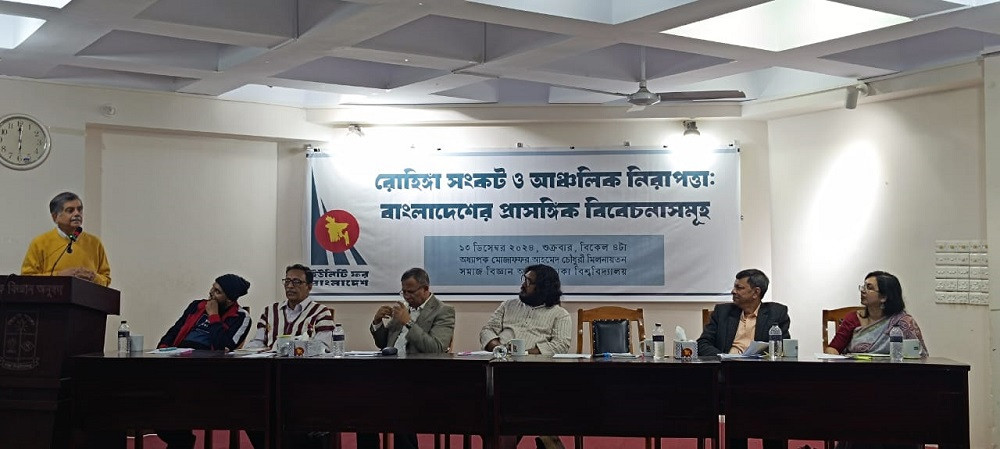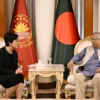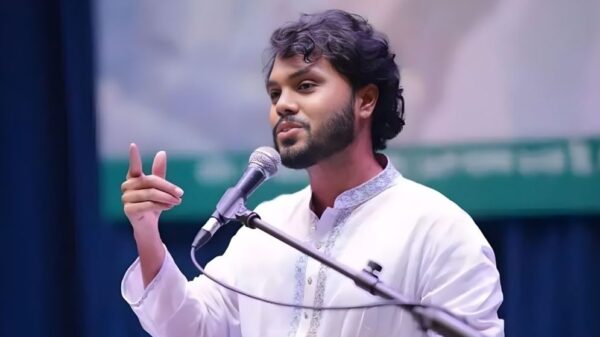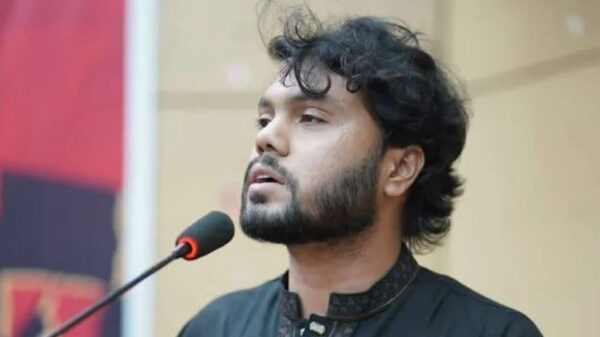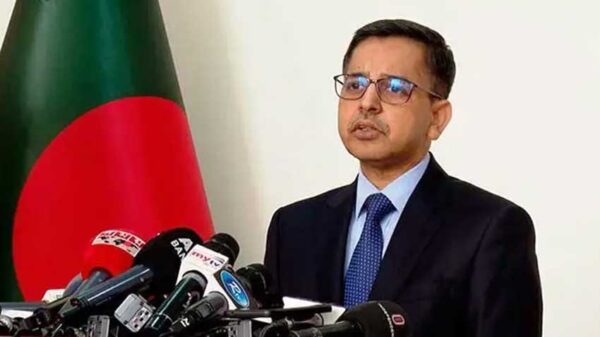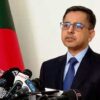Staff Reporter:
Khalilur Rahman, High Representative on Rohingya Crisis and Matters of Priority to the Chief Adviser, on Friday said Bangladesh would not take any hasty step over Rohingya issue without any proper assessment regarding the emerging situation in Rakhine state of Myanmar.
“We’re keeping watch on the emerging situation in Rakhine….. We don’t want to do anything hastily. We’ll not take any step without deep consideration,” he said, joining a discussion here in the capital through a virtual platform.
Unity for Bangladesh, a non-profit youth-based voluntary organisation, arranged the discussion titled ‘Rohingya Crisis and Regional Security: Pertinent Considerations of Bangladesh’ at Professor Muzaffar Ahmed Chowdhury Auditorium in Dhaka University in the afternoon.
Rahman said the issue is not only a humanitarian matter but also is an issue of the internal security or national security of Bangladesh. “So, we’ll take our next steps following sufficient assessments,” he said.
He said a standoff situation continues in Rakhine state as the Arakan Army has taken control of some 80-85 percent areas of the estate particularly the main lands of Rohingya there has completely gone under the control of the Arakan Army, a non-state actor.
Rahman said Bangladesh needs to wait until the final situation in Myanmar. “Our future engagement will depend on the situation that would stand there,” he added.
Prof CR Abrar, an expert on migration and refugee issues, stressed the need for making a significant investment in this Rohingya community for their education, health and livelihood and other training in order to make them enable for repatriation to their mother land with dignity and recognition of their identity.
He said Bangladesh needs to choose its allies to educate this community as it is an international responsibility. And all international bodies and communities would be too happy to provide all forms of support to this community for their education, health and training purposes.
Noting that what has been done in the name of their education is nothing effective, Prof Abrar said, “If they could stand in a strong position, then both the Arakan Army and Burmese Junta will take them back.”
He said Bangladesh should make a significant departure from this current policy and enable this community so that they can defend them and their rights.
“I think our strength (over dealing with the Rohingya issue) will come when we make a significant investment in this community,” said Prof Abrar.
Lt Gen (retd) Mahfuzur Rahman, former principal staff officer at the Armed Forces Division, stressed for adopting proper policy to take benefits of the geopolitical and geostrategic advantages. “I think we need to revisit our existing policy,” he said.
He stressed the need for developing Rohingya as human resources and creating leadership among them.
Mahfuzur said Bangladesh missed its opportunity three times from 2017 and 2024 to get a solution to the Rohingya issue and now it is going to miss the fourth opportunity.
He said Bangladesh missed the first opportunity by not keeping displaced Rohingya in no man’s land during the 2017 exodus, and the second one in 2022 by refusing the Arakan Army in 2022 when its chief sought humanitarian support and sympathy from Bangladesh and said they would take back Rohingya and the third one in February, 2024 by not taking some Rohingyas to a place inside Myanmar when the Bangladesh-Myanmar border remained unguarded for three weeks following the flee of Myanmar’s Border Guard Police.
Noting that now the National Unity Government is willing to accept Rohingyas, provide their citizenship, the retired general said Bangladesh might miss this opportunity as well.
Maj Gen (retd) Nayeem Ashfak Chowdhury, a security analyst, and Saima Ahmed, an international relations teacher in Dhaka University and writer Altaf Parvez also spoke at the discussion presided over by Monzur Moin, the spokesman of the Unity for Bangladesh.


